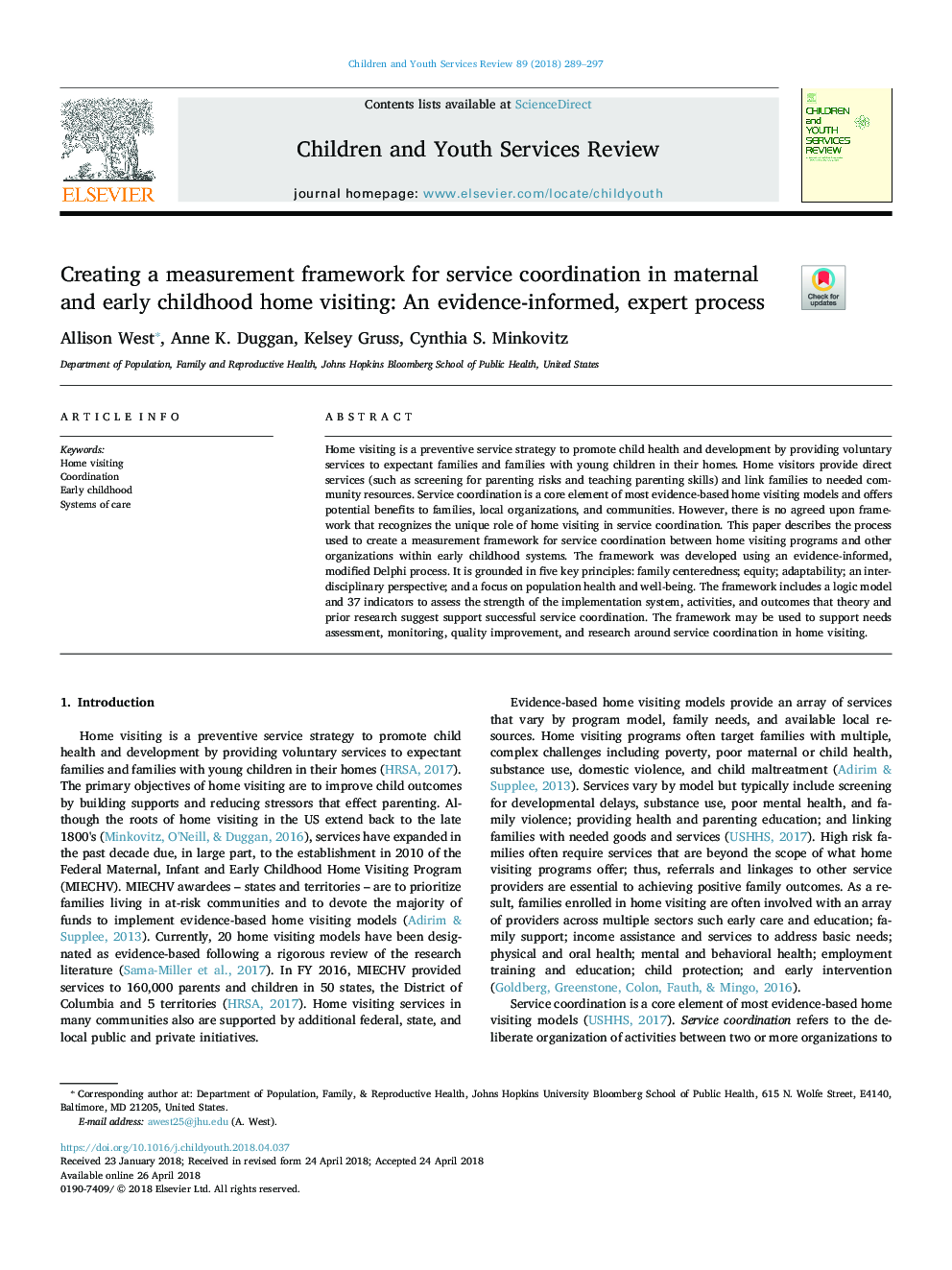| Article ID | Journal | Published Year | Pages | File Type |
|---|---|---|---|---|
| 6833095 | Children and Youth Services Review | 2018 | 9 Pages |
Abstract
Home visiting is a preventive service strategy to promote child health and development by providing voluntary services to expectant families and families with young children in their homes. Home visitors provide direct services (such as screening for parenting risks and teaching parenting skills) and link families to needed community resources. Service coordination is a core element of most evidence-based home visiting models and offers potential benefits to families, local organizations, and communities. However, there is no agreed upon framework that recognizes the unique role of home visiting in service coordination. This paper describes the process used to create a measurement framework for service coordination between home visiting programs and other organizations within early childhood systems. The framework was developed using an evidence-informed, modified Delphi process. It is grounded in five key principles: family centeredness; equity; adaptability; an inter-disciplinary perspective; and a focus on population health and well-being. The framework includes a logic model and 37 indicators to assess the strength of the implementation system, activities, and outcomes that theory and prior research suggest support successful service coordination. The framework may be used to support needs assessment, monitoring, quality improvement, and research around service coordination in home visiting.
Related Topics
Health Sciences
Medicine and Dentistry
Perinatology, Pediatrics and Child Health
Authors
Allison West, Anne K. Duggan, Kelsey Gruss, Cynthia S. Minkovitz,
